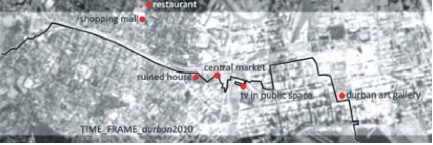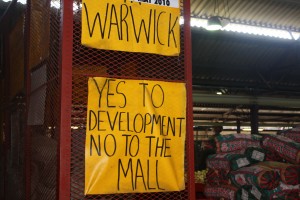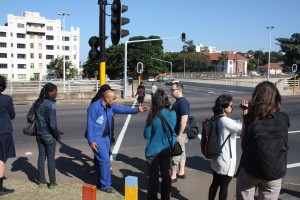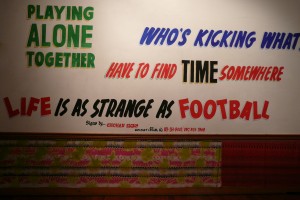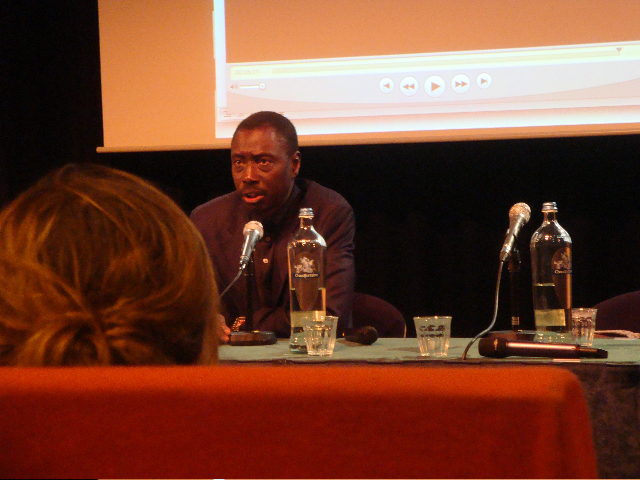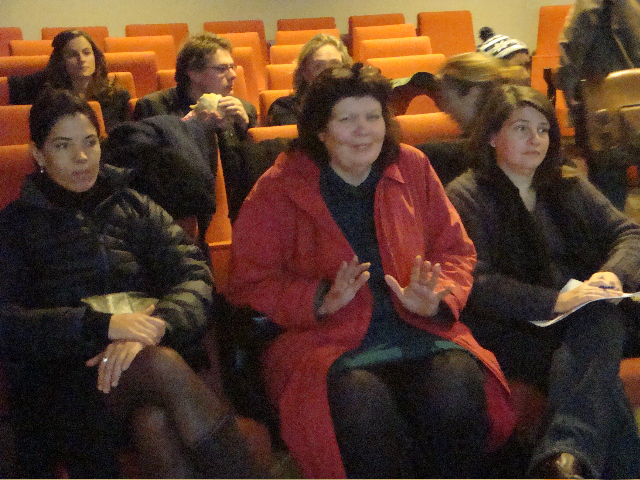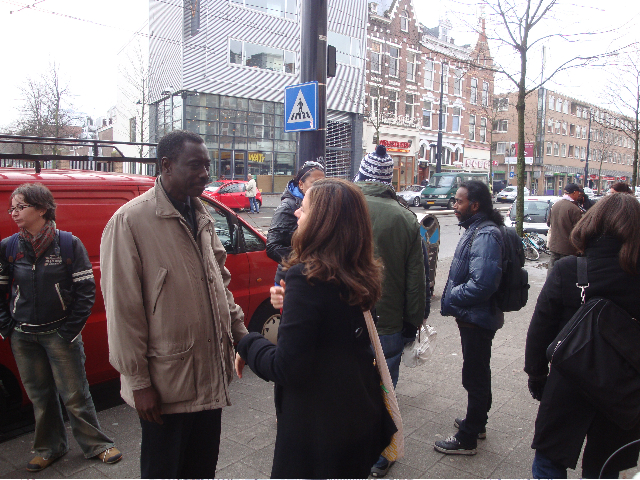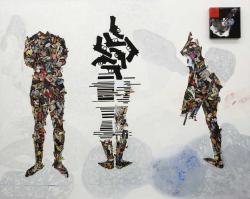SHOOT ME WALKING INTO THE REAL THING!
Following up their participation in ‘the MEDIA_CITY’ workshop in Amsterdam (March 2010), ‘dala’ was interested to connect the project and synergies developed in Amsterdam with the city of Durban in South Africa from July 01 to July 11, 2010. Thus, facilitating a creative platform between creative practitioners from a variety of backgrounds called City Walks.
>What is the architecture of the 21st century?
>What does architecture means for a homeless?
>How is the African market of the 21st century?
Deconstructing the city, looking for the micro interventions that lead to macro development, questioning fear and control, looking beyond surface, finding eye contact, waiting for the beggarsproof bus stops, witnessing the disruption of markets that develop along the people’s walk…
These are some of the resulting questions and investigations of dala’s initiative City Walks through the city of Durban, where they shared with us their views on urban space negotiation and their believe in the transformative role of creativity in building safer and more liveable cities. This edition of City Walks also has an added component focused on experiencing the city of Durban in the context of the world cup 2010, where large international audiences are expected and analizes how this influx will negotiate and share public spaces with the main local cultural groups, the Zulus, Afrikaners, Indians and English.
dala’s initiatives all revolve around re-imagining the use and expression in and of public space. Re- definition and re-creation, and transformation implies often conflict that is an essential measure of creative practices, that underpins the dynamics of contemporary cities dealing with the flux of dislocated cultural identities challenging the dominant meta narratives of Globalization.
After this intense walk through the city of Durban we started an artistic dialogue with local artists that would help us to deconstruct the mediatic image of South African Society, introducing in our agenda some other forms of artistic participaion that listen to the voice of the local communities and that leaves behind not only traces but seeds of large shadows.

